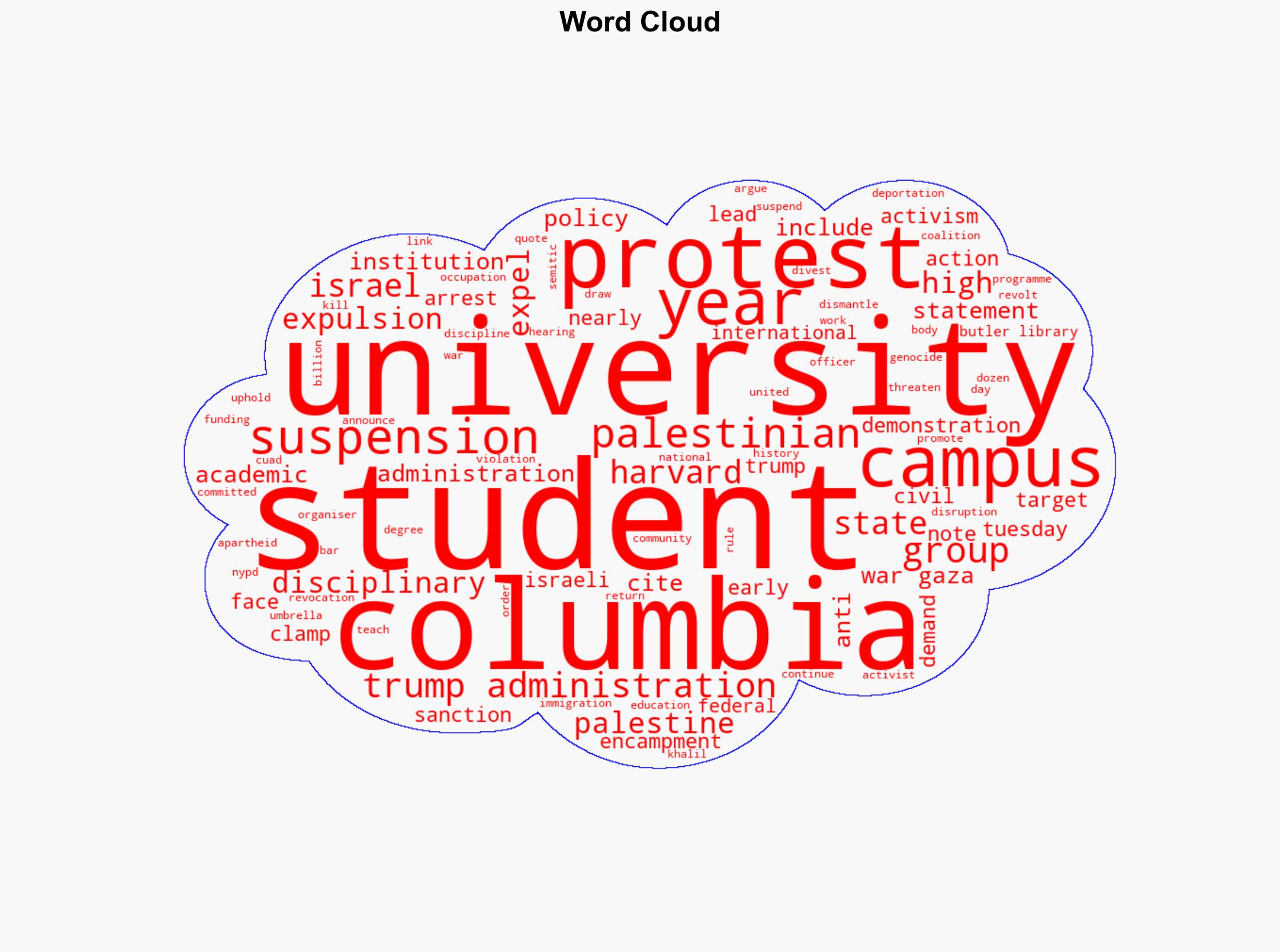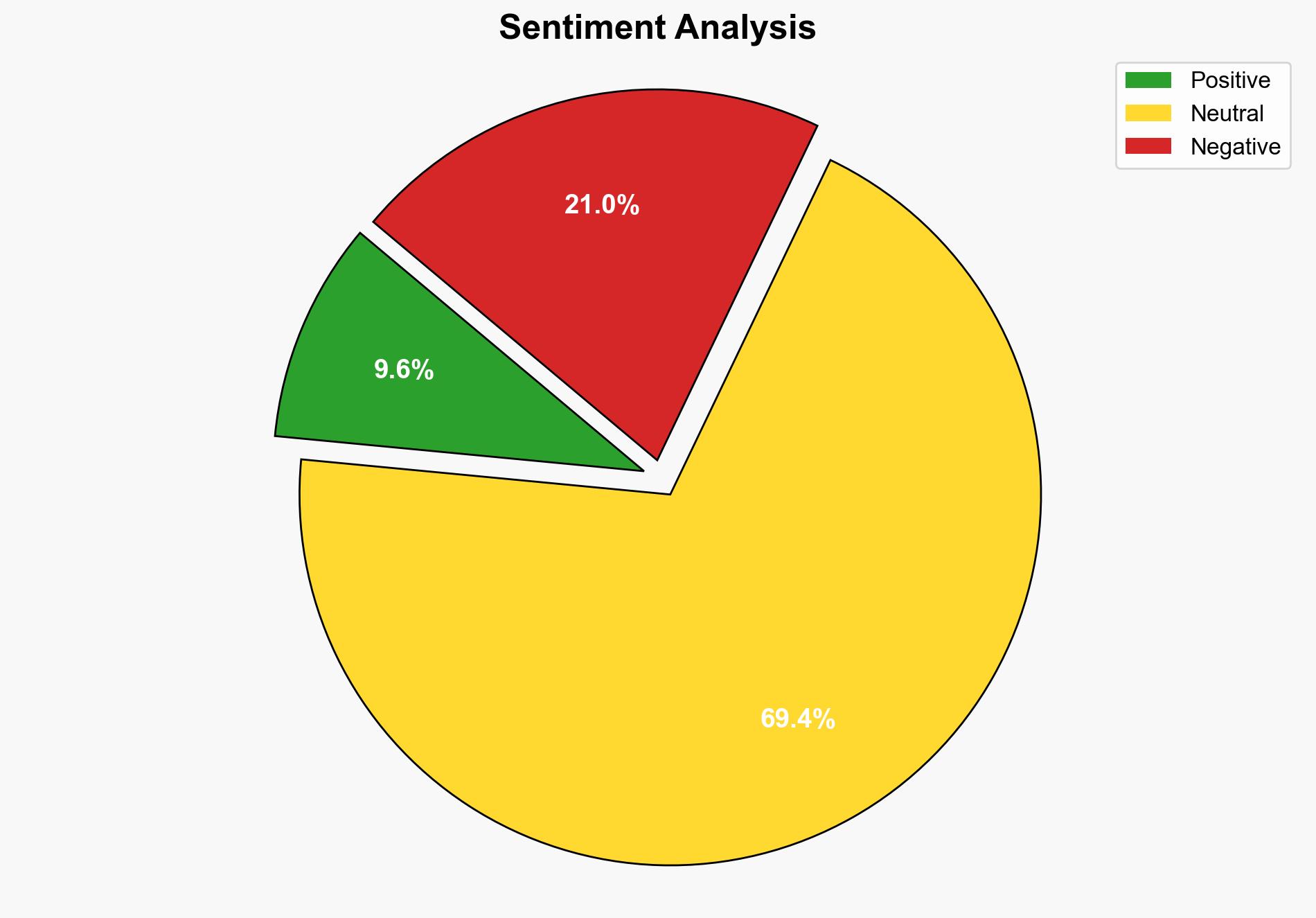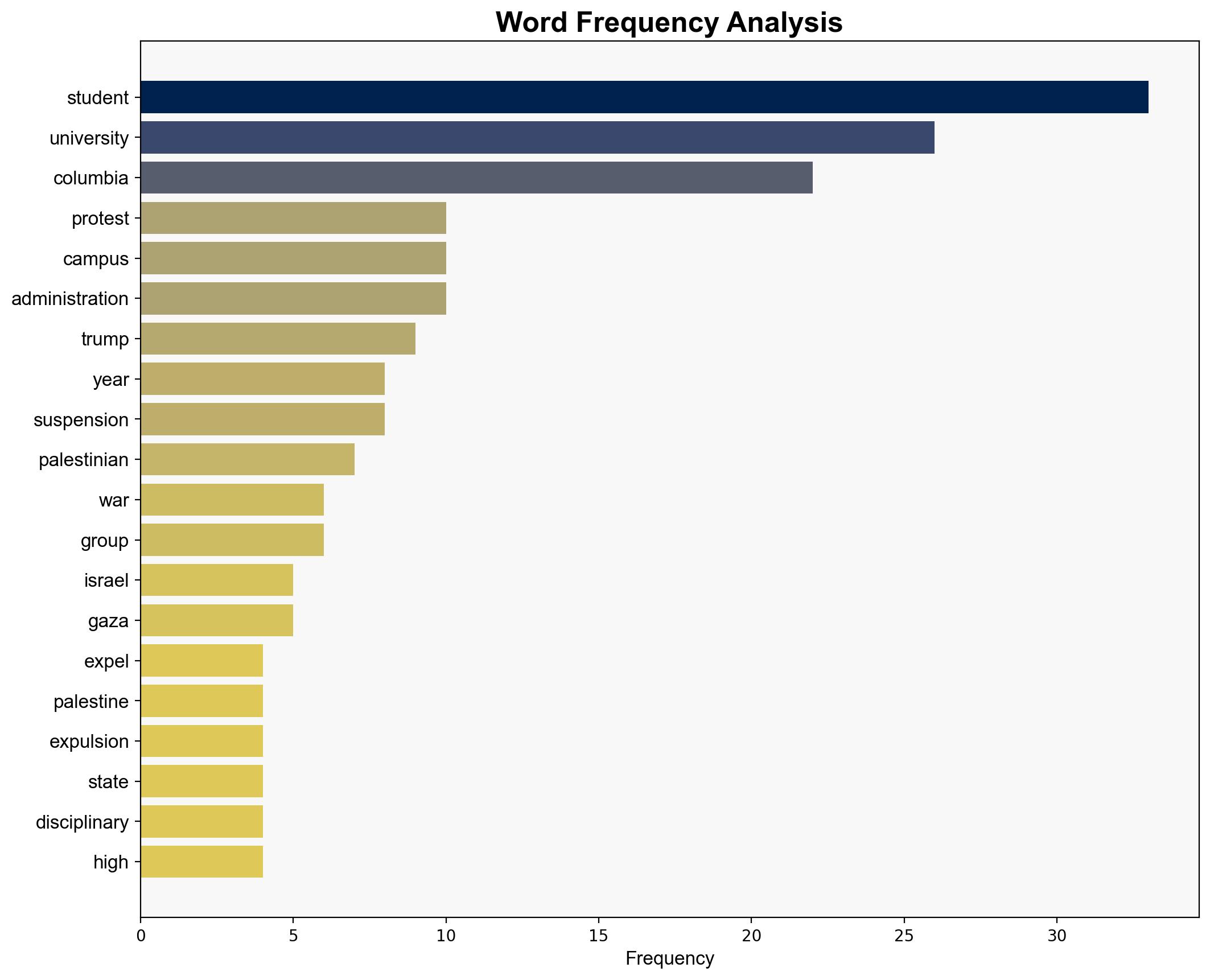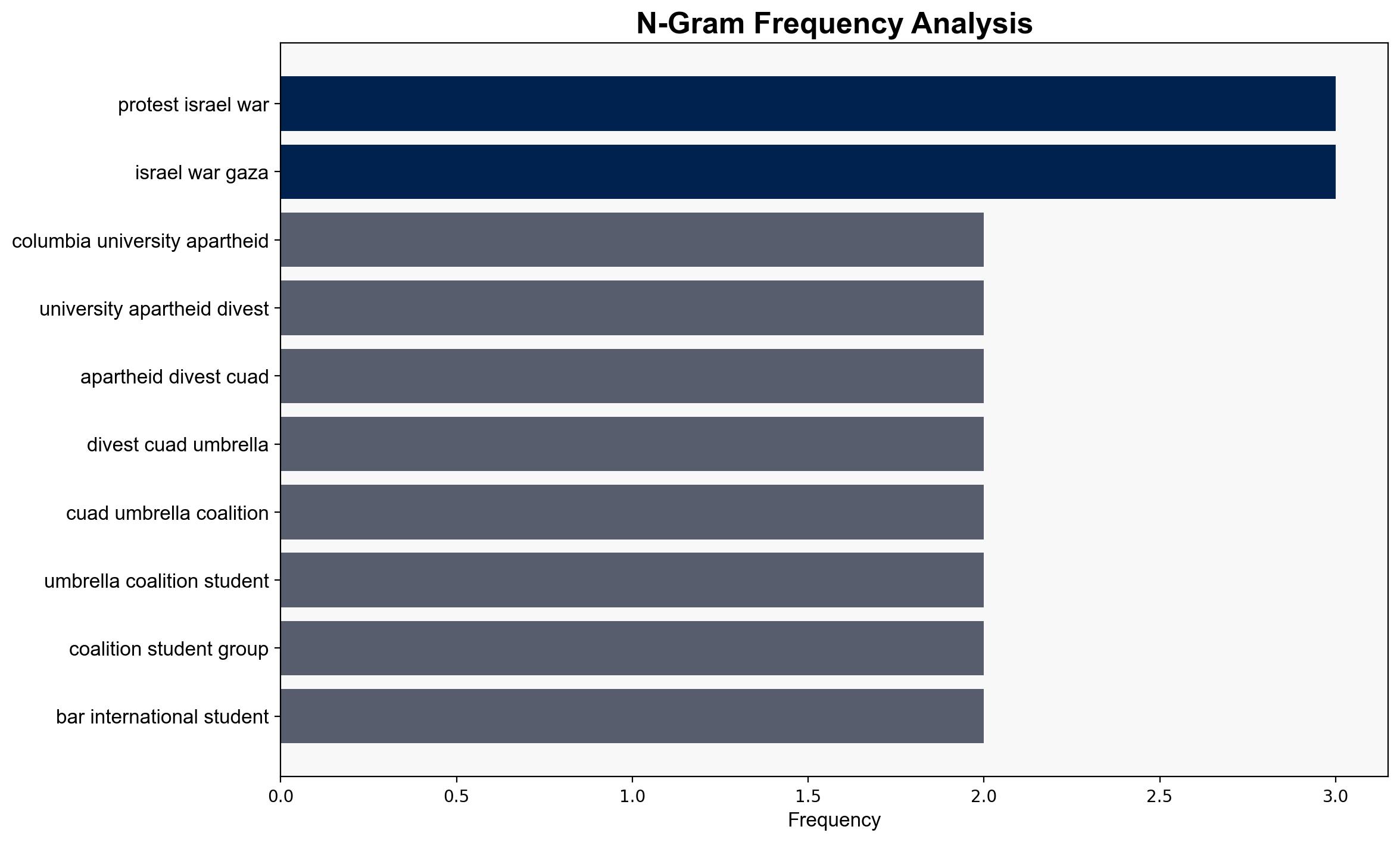Why is Columbia University expelling pro-Palestine students – Al Jazeera English
Published on: 2025-07-23
Intelligence Report: Why is Columbia University expelling pro-Palestine students – Al Jazeera English
1. BLUF (Bottom Line Up Front)
Columbia University has expelled or suspended students involved in pro-Palestine protests, citing disruptions to academic activities. This action follows a series of campus demonstrations against Israel’s military actions in Gaza. The university’s decision aligns with a broader trend of increased scrutiny and disciplinary measures against student activism, potentially influenced by external political pressures.
2. Detailed Analysis
The following structured analytic techniques have been applied to ensure methodological consistency:
Cognitive Bias Stress Test
Potential biases include the perception of student activism as inherently disruptive. This bias may overlook the peaceful nature of some protests, such as teach-ins and discussions.
Bayesian Scenario Modeling
The likelihood of continued student activism remains high, with potential escalation if perceived injustices are not addressed. The probability of further disciplinary actions could increase if protests persist.
Network Influence Mapping
Key influences include university administration, student groups, and external political entities. The interaction between these actors suggests a complex dynamic where external political pressures may impact university policies.
3. Implications and Strategic Risks
The expulsion of students may lead to increased tensions on campus and could spark further protests, potentially drawing national attention. This situation poses risks to the university’s reputation and may impact its funding and relationships with governmental bodies. Additionally, there is a risk of escalating tensions between pro-Palestine and pro-Israel groups, potentially leading to broader societal impacts.
4. Recommendations and Outlook
- Engage in dialogue with student groups to address grievances and reduce tensions. Consider establishing a mediation process to handle disputes.
- Monitor the situation for signs of escalation and prepare contingency plans for managing large-scale protests.
- Scenario-based projections:
- Best Case: Constructive dialogue leads to a de-escalation of tensions and a resolution that respects student rights and university policies.
- Worst Case: Escalation of protests leads to increased violence and further disciplinary actions, damaging the university’s reputation and financial standing.
- Most Likely: Continued protests with sporadic disciplinary actions, maintaining a tense but manageable situation.
5. Key Individuals and Entities
Mahmoud Khalil, a protest leader, has been notably targeted for deportation, highlighting the personal risks faced by student activists.
6. Thematic Tags
national security threats, student activism, university policy, political influence




